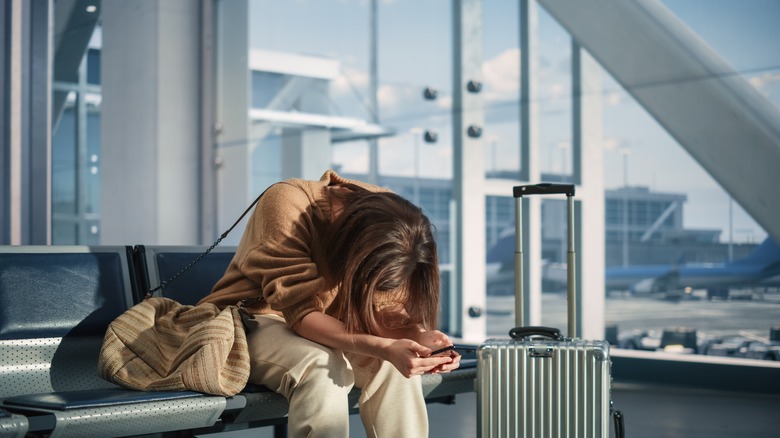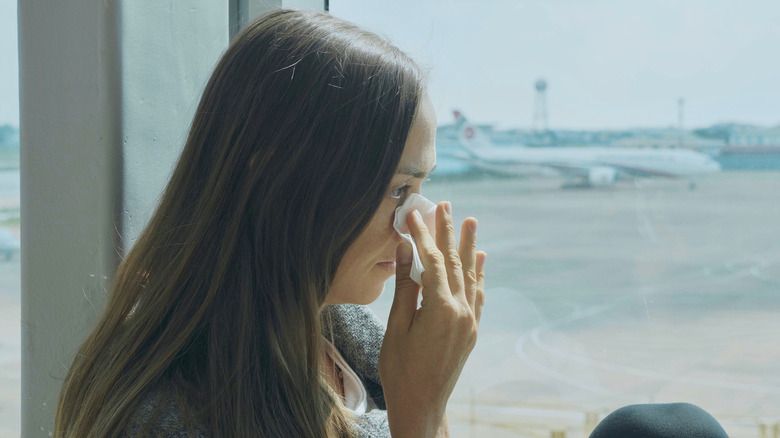The Unexpected Reason Your Emotions Are So Heightened On A Plane
There are lots of stressors involved with flying. Forget the fact that you're sitting in a cramped seat surrounded by strangers, just getting on the airplane might have been an ordeal: arriving three hours ahead of time, the long security lines, the delays in boarding, and you may even have a fear of flying. That's why flying, at the best of times, is still a bit of a headache. So it's no wonder that our emotions might be heightened during a flight. Have you ever noticed that you're more likely to cry while flying? You're not alone. A 2011 survey by Virgin Atlantic (via The Guardian) discovered that 55% of respondents agreed their emotions become heightened when on a flight, with 41% of men admitting they hid under blankets to hide their tears.
You might think you're crying on a flight because the airport security stressed you out, or because you just said goodbye to a loved one at the terminal, or because you get anxious during turbulence. All of those incidents, and more, can definitely cause tears. However, experts are saying something else might be at play. In fact, it could be the psychological effects of dehydration that makes your eyes well up. Here's why.
High altitude can cause eye dehydration
When a plane's cabin pressure is maintained at 6,000 to 8,000 feet above sea level, according to TIME, that altitude can have a psychological effect on passengers, causing dehydration. As a result, the eyes well up. "When you're dehydrated, it's not just the body that's lacking in resources," psychologist Jodi De Luca told the outlet. "Everything is affected. Some people have difficulty self-regulating their emotions." Travel expert Samantha Brown agrees. When air conditions cause eye dryness, "the only way your eyes know how to create moisture is to cry. And so it becomes this physical response that the brain sends to release the tear ducts," she told CNN. "You have to be emotional to cry, [so] your body acclimates to the dryness and creates the tears, but has to create the emotion first to create the tears."
Cabin pressure not only creates dehydration, it also causes oxygen deficiency. "There's a plethora of evidence that you go into a relative state of hypoxia when you're in flight," Dr. Robert L. Quigley told CNN. "One person might feel weepy, another sleepy – hypoxia affects people in different ways. There may even be hormones triggered by hypoxia – it's all idiosyncratic." Because of this increase in emotions, studies also suggest we're more likely to cry during in-flight movies, even if that movie wouldn't make us cry at home, per The Times. So if you don't want to break out the Kleenex, we suggest sticking to Sudoku, crossword puzzles, and sleep!

